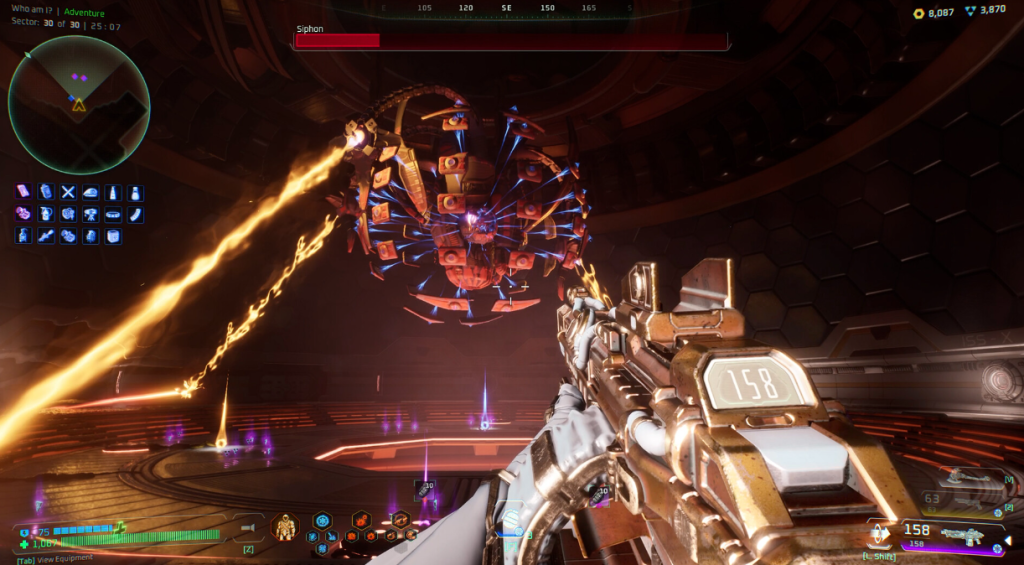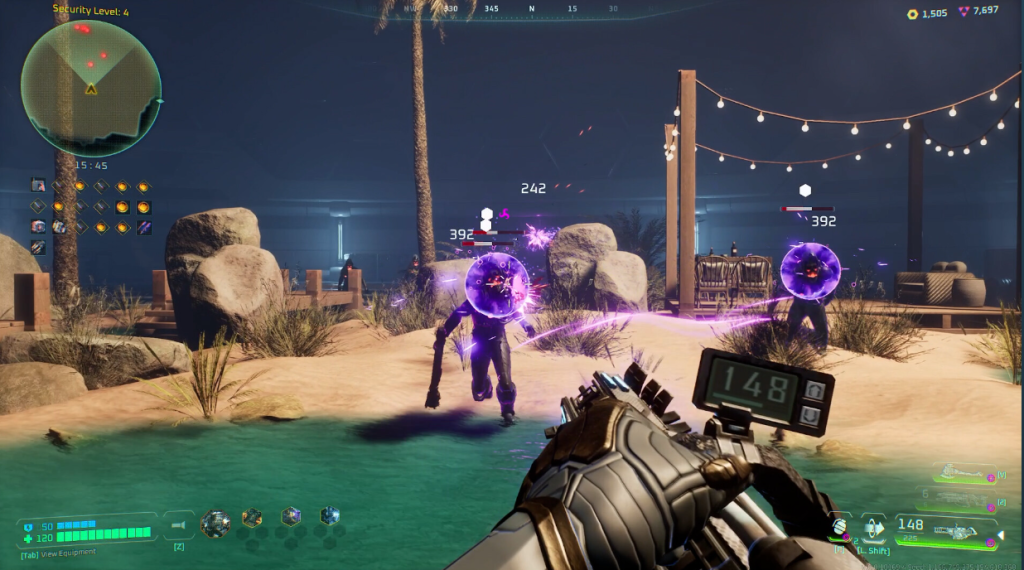Deadzone: Rogue thrusts you into the heart of a derelict space station, the ISS-X, with no memory of your past and only your wits to survive. As you awaken amid the wreckage, a relentless horde of biomechanical monstrosities closes in, setting the stage for a desperate struggle for survival. The game’s premise is instantly captivating: you must fight, loot, and adapt, using whatever weapons and augments you can find to carve a path through waves of enemies and towering bosses. The stakes are high, the tension palpable, and the promise of discovery lingers in every abandoned corridor.

Atmosphere and Narrative: Lost in Space
From the outset, Deadzone: Rogue immerses you in a haunting, isolated atmosphere. The ship’s environments ranging from claustrophobic engine rooms to eerie brig areas are filled with the remnants of a once thriving crew, now replaced by rogue machines and twisted biomechanical creatures. The narrative hook is strong: you’re an amnesiac survivor, piecing together your identity while unraveling the ship’s dark secrets. The plot is intriguing, but it feels underdeveloped, as if the full story is just out of reach. I found myself wanting more depth and exposition, especially as the mystery of your origin is teased but never fully explored.
The game’s art style and original soundtrack contribute to the sense of isolation and tension. The graphics, while solid, are nothing groundbreaking, but they do a decent job of creating a believable sci-fi setting. The music, on the other hand, stands out its haunting melodies and pulse pounding action tracks keep you engaged as you navigate the ship’s dangers. Still, the environments can feel repetitive after a while, with level layouts that start to blur together, and enemy variety that doesn’t quite keep pace with the game’s ambitions.
Combat and Progression: Guns, Augments, and Survival
Combat is where Deadzone: Rogue shines, at least in theory. You have access to over 30 weapons, each modifiable with elemental affixes and upgrades. The promise is enticing: turn a shotgun into a void spewing crowd controller, or a submachine gun into a room clearing hailstorm of ice. The variety of guns is impressive, and there’s always a way to build around your favorite weapon, tweaking it to suit your playstyle. This flexibility is one of the game’s strongest points no matter what you pick up, you can always find a way to make it work for you.
However, the execution falls short of its potential. While the guns are varied, they feel static and uninspired. There are no under barrel attachments, alternate fire modes, or truly unique effects just basic point and shoot mechanics with different stats. The combat loop is satisfying at first, but it quickly becomes repetitive, especially as you realize that most enemies behave in predictable ways and the environments offer little tactical variety. The lack of bouncing shots, explosives, or other creative combat options is a missed opportunity, and it makes the gunplay feel less exciting than it could be.
Augments and perks add some much needed depth, allowing you to tailor your approach to combat. Whether you prefer stealth, ranged attacks, or close quarters melee, there’s a build for you. Permanent upgrades let you reshape your character into a true killing machine, boosting shields, amplifying elemental effects, and enhancing your overall lethality. The progression system is engaging, but it feels shallow the skill tree is easy to max out, and there’s not enough content to sustain long term interest.

Co-op and Replayability: Team Up or Go Solo
One of the highlights of Deadzone: Rogue is its co-op mode, which allows you to team up with up to two friends to tackle the ship’s dangers together. Coordinating attacks, marking enemies for focused fire, and synchronizing grenade strikes add a layer of strategy and fun that’s missing from the solo experience. The ability to adjust difficulty levels for each mission is a nice touch, letting you tailor the challenge to your mood whether you want a relaxed adventure or a brutal, nightmare level struggle.
Despite these features, the game’s replayability is limited. With only two fully fleshed out zones and a third still unreleased, the content feels sparse. The challenge missions for each zone are a welcome addition, but they’re not enough to keep the experience fresh for long. After a few runs, the repetitive level design and lack of enemy variety start to wear thin, and the game’s “Early Access” status becomes all too apparent.
Personal Experience and Opinion: Promise, but with Reservations
As someone who enjoys the adrenaline rush of arcade style shooters and the thrill of building powerful characters, I was initially excited by Deadzone: Rogue. The premise is compelling, and the gunplay is solid, if unspectacular. The flexibility of the weapon and augment system is a real strength, and I appreciated the ability to experiment with different builds and playstyles.
However, the game’s static design and repetitive nature quickly became apparent. The guns, while numerous, lack the creativity and personality that make similar titles stand out. The environments are functional but uninspired, and the enemy variety is disappointingly basic. The progression system, while initially engaging, feels shallow and easy to max out. The plot, while intriguing, is underdeveloped and leaves too many questions unanswered.
I also can’t shake the concern about the game’s future. After seeing games like Tribes III: Rivals released in Early Access and abandoned shortly thereafter, I’m cautious about Deadzone: Rogue’s long term prospects. The game has sold well and received positive ratings, so I’m hopeful that development will continue, but I’m not holding my breath. There’s a lot of potential here, but the game needs more content, more variety, and more polish to truly stand out.
Final Thoughts
Deadzone: Rogue is a promising sci-fi roguelike shooter with a strong premise and flexible combat system. The co-op mode and weapon variety are highlights, but the game’s static design, repetitive environments, and lack of content hold it back. For now, it feels like a solid foundation with plenty of room to grow hopefully, the developers will continue to build on it and deliver the deeper, more varied experience that the concept deserves. Until then, it’s a fun diversion for fans of the genre, but not yet a must play.